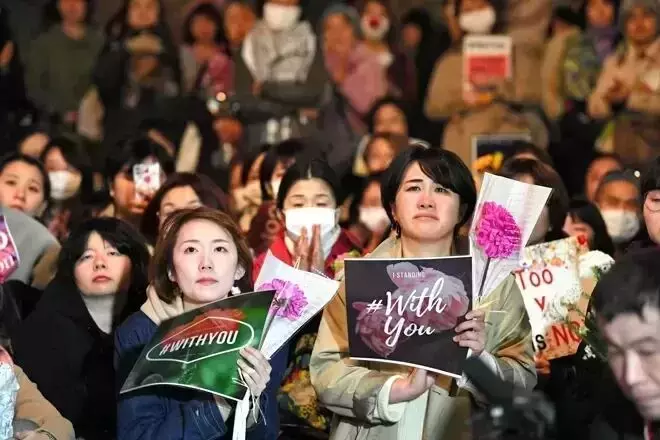
Japan redefines rape, raises age of consent to 16 in historic move
text_fieldsTokyo: In a landmark move, Japan has redefined rape changing the earlier definition of "forcible sexual intercourse" to the broader term "non-consensual sexual intercourse." The legal age of consent, previously only 13, has also been raised to 16 years.
Critics argue that the previous laws failed to protect victims coerced into sexual acts and discouraged reporting, resulting in inconsistent court decisions and prompting a pressing need for change.
The upper house of Japan's parliament, known as the Diet, passed these groundbreaking laws on Friday.
The revised legislation explicitly outlines eight scenarios in which it may be challenging for a victim to give or withhold consent to sexual intercourse.
These scenarios encompass situations involving alcohol or drug intoxication, threats or violence, and instances where victims feel frightened, astonished, or pressured due to an abuse of power.
Remarkably, this marks the first time Japan has revised its age of consent since its enactment in 1907. Previously, Japan had one of the lowest ages of consent among developed nations.
 Also Read:Eliminate legal barriers to women owning land: UN chief
Also Read:Eliminate legal barriers to women owning land: UN chief
However, under the new reforms, a person engaging in sexual activity with a minor aged 13 to 15 will face punishment only if they are at least five years older than the minor.
Additionally, the statute of limitations for reporting rape has been extended from 10 years to 15 years, affording survivors a greater opportunity to come forward and seek justice.
The legal changes also include provisions that ban "photo voyeurism," including upskirting and the covert recording of sexual acts.
These groundbreaking legal reforms come in the wake of multiple rape acquittals in 2019 that sparked national outrage and led to the Flower Demo campaign, a nationwide movement against sexual violence.
Activists have been gathering on the 11th day of every month since April 2019 to demand justice and demonstrate solidarity with sexual assault survivors.
However, some activists caution that these legal reforms only address one aspect of a broader problem. Survivors who speak out about their experiences often face threats and online harassment, highlighting the importance of empowering survivors to report their assaults even after the reforms have been implemented.
Stigma and shame surrounding sexual violence deter many survivors in Japan from coming forward.
A government survey conducted in 2021 revealed that only approximately 6 per cent of women and men reported incidents of assault, with half of the women polled citing "embarrassment" as a significant barrier to reporting, reported the BBC.
In Japan, sexual assault is still a taboo subject. It grabbed national attention only in recent years in the wake of high-profile cases such as Shiori Ito's court battle, former member of the Self Defence Force and sexual assault survivor Rina Gonoi's public statements, and the Johnny Kitagawa expose.
























